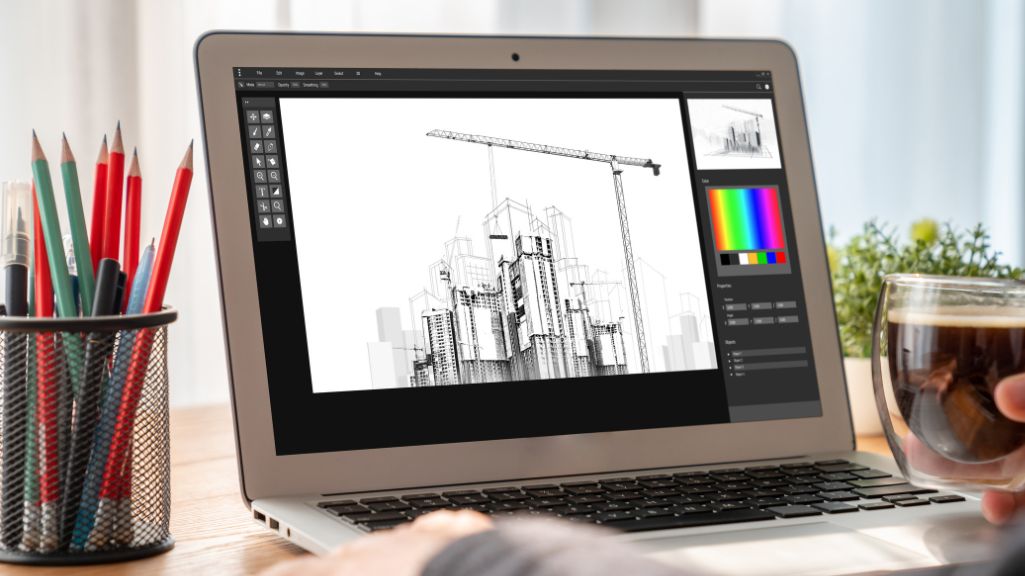Introduction
In the ever-evolving field of civil engineering, staying up-to-date with the latest tools and technologies is crucial. The right civil engineering tools can make a significant difference in project management, ensuring accurate design and timely completion. As the demand for skilled professionals rises, having expertise in the latest equipment and software becomes a competitive advantage for graduates and professionals alike. Let’s dive into the must-have tools for civil engineers in 2025.
Surveying Equipment for Modern Civil Engineering:

Surveying is the backbone of civil engineering projects. Modern surveying equipment, such as drones and GPS, has transformed how engineers gather site data. With the help of GPS surveying equipment, professionals can achieve precision like never before. Traditional tools like levelling instruments and theodolites remain essential, but now, they often work in tandem with newer technologies. This combination ensures that measurements are accurate and efficient, allowing engineers to lay the groundwork for successful projects.
Innovative Drafting and Design Software:

Drafting and design are integral to bringing engineering concepts to life. Today’s civil engineers rely on software like AutoCAD, Civil 3D, and Revit to create detailed plans. These programs are crucial civil engineering tools that help translate complex designs into workable blueprints. AutoCAD, in particular, remains a staple for precise drawings, while Civil 3D and Revit are gaining traction for their capabilities in creating 3D models and streamlining design processes. Mastery of these software programs is key to a successful career in civil engineering.
Soil Testing Equipment:

Understanding soil properties is vital for the safety and stability of any construction project. Modern civil engineering soil testing involves using equipment like soil moisture sensors, cone penetrometers, and soil samplers. These tools help assess soil strength and composition, ensuring the foundation can support the structure. Whether it’s testing with sieves for particle size distribution or using advanced sensors for moisture content, precise soil analysis can make or break a project.
Concrete Testing Tools:

Concrete remains the backbone of many structures, and its quality must be carefully monitored. Quality control tools such as ultrasonic pulse velocity testers and slump cones are critical in maintaining concrete strength. These concrete quality testing tools ensure that the material meets the required standards before being used in construction. Engineers rely on these instruments to measure the durability, consistency, and compressive strength of concrete, providing the assurance that the structures they build will stand the test of time.
Construction Management Tools:

Managing a construction project efficiently requires a suite of specialised tools. Inspection tools, combined with software like Procore and Primavera, help streamline communication and keep everyone on the same page. These platforms are ideal for resource management, budget tracking, and scheduling. Primavera for civil engineers, in particular, is popular for managing complex projects with its advanced scheduling capabilities. Utilising these tools means smoother workflows and better control over project timelines.
Structural Analysis Software:
When dealing with complex structures, precise load analysis is key. Software like STAAD Pro, ETABS, and SAP2000 is designed for such tasks. These structural analysis programs enable engineers to evaluate the stability and safety of their designs under various load conditions. They play a crucial role in analysing and designing complex structures, from skyscrapers to bridges, ensuring that each component can withstand the stresses it will encounter throughout its lifespan.
Geotechnical and Environmental Monitoring Equipment:
Environmental factors can greatly impact construction projects, making geotechnical and environmental monitoring tools indispensable. Programs like ArcGIS and Plaxis software help engineers perform detailed environmental impact assessments. They enable the tracking of changes in soil and groundwater conditions, which is vital for sustainable construction practices. As engineers strive to build more eco-friendly structures, these tools are crucial in ensuring projects are in harmony with their surroundings.
Traffic Engineering Tools:
As urban areas expand, traffic flow optimization becomes more critical. Tools like Synchro software and VISSIM provide engineers with the capability to model and analyse traffic patterns. Roadway design software helps in planning roads that can accommodate growing traffic demands while maintaining safety and efficiency. By using these tools, civil engineers can design better traffic management solutions that keep cities moving smoothly.
Safety Equipment:
Safety is non-negotiable on any construction site. Modern civil engineering tools for safety include everything from automated machinery to wearable safety devices for construction workers. Construction safety tools ensure that the workforce is protected against potential hazards. By integrating advanced safety measures, engineers can minimise risks and create a safer work environment, which is a cornerstone of any successful construction project.
Emerging Technologies: The Future of Civil Engineering Tools
The future of civil engineering lies in embracing technologies like artificial intelligence (AI) and machine learning. AI in civil engineering is revolutionising how project workflows are managed, from predictive modelling to data analysis. These technologies enhance decision-making processes, allowing engineers to anticipate challenges and optimise designs. Building Information Modeling (BIM) continues to play a significant role in creating digital representations of structures, making it easier to plan and manage projects. Staying ahead with these advancements ensures that engineers remain competitive in a fast-paced industry.
Conclusion
The array of tools available to civil engineers continues to grow, from traditional surveying equipment to advanced civil engineering software. Mastery of these tools, such as AutoCAD Civil and the latest innovations, is key for career advancement. For those looking to upgrade their skills, investing in an AutoCAD civil course or a civil engineering AutoCAD course can make a significant difference. These courses not only sharpen technical abilities but also open up new opportunities in the industry.
To learn more about how you can advance your career with the right training and resources, visit CADD Centre.
FAQs
What are the Top Civil Engineering Tools used in 2025?
In 2025, the most essential civil engineering tools include AutoCAD Civil 3D, surveying drones, Revit for BIM, soil testing kits, concrete strength testers, and Primavera project management software. These tools enhance accuracy, safety, and project efficiency.
How is AI used in civil engineering tools?
Artificial Intelligence in civil engineering is applied through tools that offer predictive analysis, real-time monitoring, and automated project updates, improving accuracy and reducing human error.
What tools are used for soil testing in civil engineering?
Soil testing equipment such as cone penetration test (CPT) tools, moisture meters, and sieve analysis kits help engineers assess soil strength and suitability before construction begins.
Where can I learn these civil engineering software tools?
You can enroll in professional training programs at CADD Centre, which offers certified courses in AutoCAD Civil 3D, Revit, Primavera, and other in-demand civil engineering software.





